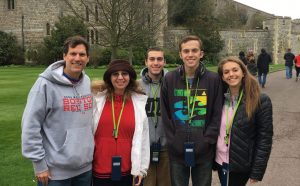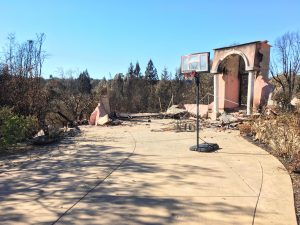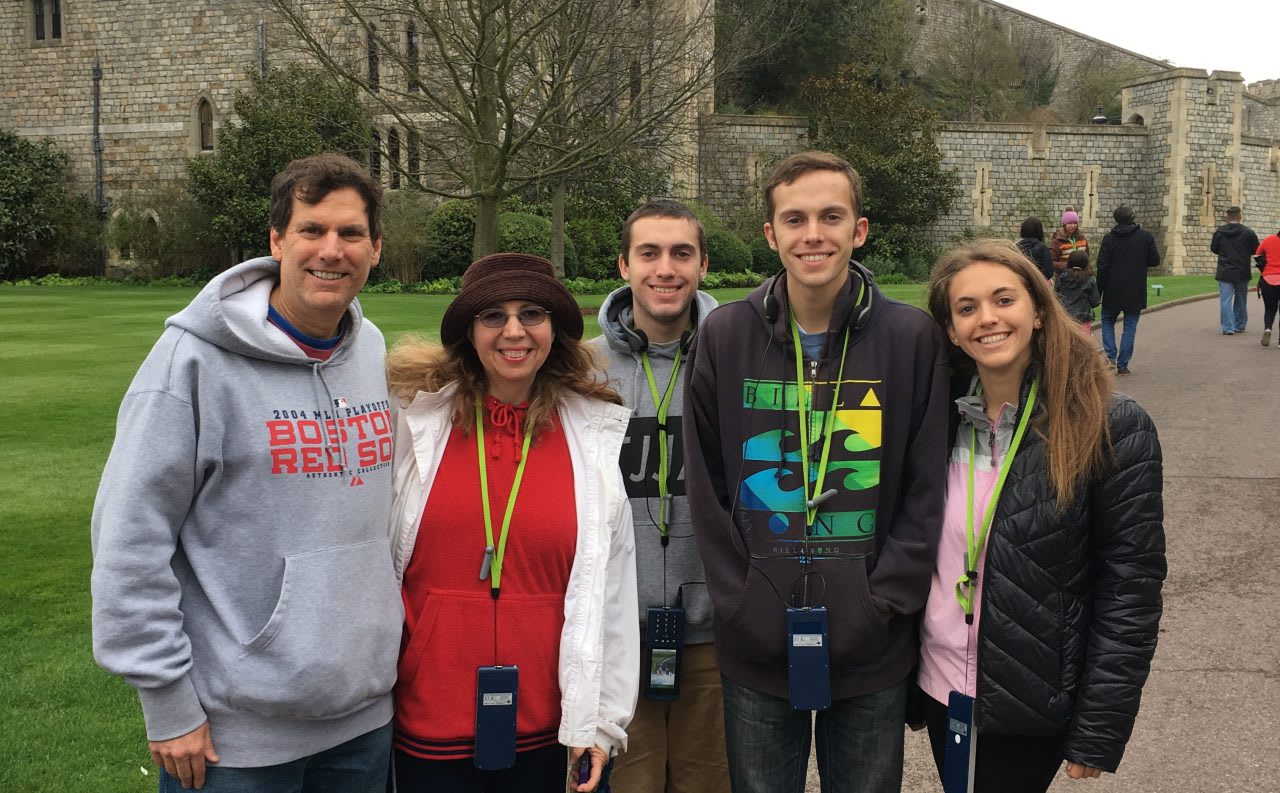For most of us, October 8 was a regular day. It was the Sunday of chol hamoed but otherwise unremarkable. That’s how it started out for the Rosenthal family of Santa Rosa, CA, whose day culminated with dinner in their succah. Little did they suspect that mere hours later, everything would change.
It was 3:30 in the morning and most of the Rosenthals – Justin, a hospital administrator; Shacharit, a college administrator; 18-year-old twins Elias and Ari; and 16-year-old Moriah – were asleep in their home. (Daniel, the eldest of the Rosenthal children, was away at college in UC Berkeley.) Elias heard evacuation alarms and smelled smoke, causing him to wake the rest of the family. The power having gone out some time earlier, the Rosenthals were forced to grope their way out in pitch darkness, further complicated by the need to circumvent the electric doors and gates upon which their escape route relied. They were barely able to escape before their home was engulfed in flames. Ari grabbed two things: his tallis and tefillin. Moriah, who had attended Camp Stone, learned to keep a “Moshiach bag” near the door for quick departures; her bag contained such essentials as a copy of Tehillim (Psalms) and the only family photos that now remain.

This fire – the largest in California history – is acknowledged as one of the worst disasters ever to hit the state. More than 40 people were confirmed dead in Sonoma, Napa, Mendocino and Yuba counties; 5,700 buildings were destroyed and hundreds of people went missing as fires ravaged 160,000 acres (250 square miles). In the Rosenthal’s hometown of Santa Rosa, county seat of Sonoma County, 22 were confirmed dead, 4,500 homes were destroyed and nearly 100,000 were displaced by fires that caused billions in damage, not to mention the impact on the local wine- and tourism-based economy.
The Rosenthals evacuated to the home of Justin’s sister, some 60 miles away. By this time, the sun was coming up and the kids’ priority was finding a succah, and a lulav-and-esrog, “to reestablish our strength and our faith,” Justin said.
“We were in the succah that evening before this whole firestorm caught and we spoke about what the succah symbolizes,” he continued. “The succah is a temporary dwelling. It reminds us that everything we have is really temporary.”
After obtaining access to a lulav-and-esrog and a succah, the next order of business was replacing Justin and Elias’ tefillin and the family’s siddurim. The children, who had been attending public school in Santa Rosa, were taken in by Jewish Community High School of the Bay in San Francisco. The Rosenthal teens, who started the Jewish Student Union club in their high school, had long dreamed of studying in a Jewish institution, though surely not under such circumstances.
In the face of such overwhelming loss of property, it would be amazing for even adults to be more concerned with their spiritual needs than with material things. How is it that teens demonstrate such concern for their religious needs over and above all else? “It’s a testament to their deep, deep faith,” their father says. “They’ve really taken it upon themselves to learn as much as they can, to go to shul every Shabbat and to be as observant as they can be…learning online, going to NCSY…Their emunah (faith) is just so strong.” Speaking with Mr. Rosenthal, it becomes clear that the children’s emunah, which enables them to prioritize their spiritual concerns over physical possessions, is also learned from their parents.
Aside from Ari’s tallis and tefillin, Moriah’s “Moshiach bag, and the clothes on their backs, only three possessions survived the fire: an 18-year-old minivan, a basketball hoop and, incredibly, the family’s esrog. It is rare (and inspiring!) to find a family that has borne so great a loss with such acceptance and faith. It is not only sobering, it provides important context for those of us who lose all composure over minor inconveniences.

Even in the face of all this upheaval, the Rosenthals value hakarat hatov (gratitude), requesting that we be sure to acknowledge Beth Jacob Congregation in Oakland, NCSY and the Jewish Community High School of the Bay for all they have done to assist the family in the aftermath of this tragedy.
West Coast NCSY has set up a fund for to assist Ari in attending Yeshiva University and Moriah in attending NCSY’s Michlelet summer program; visit westcoast.ncsy.org/firefund. Those who wish to assist can also donate funds earmarked for Rosenthals to the Rabbi’s discretionary fund of Beth Jacob Congregation in Oakland; visit bethjacoboakland.org.
The words of this author reflect his/her own opinions and do not necessarily represent the official position of the Orthodox Union.
